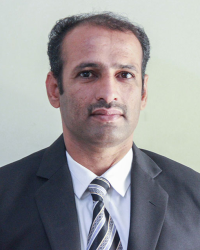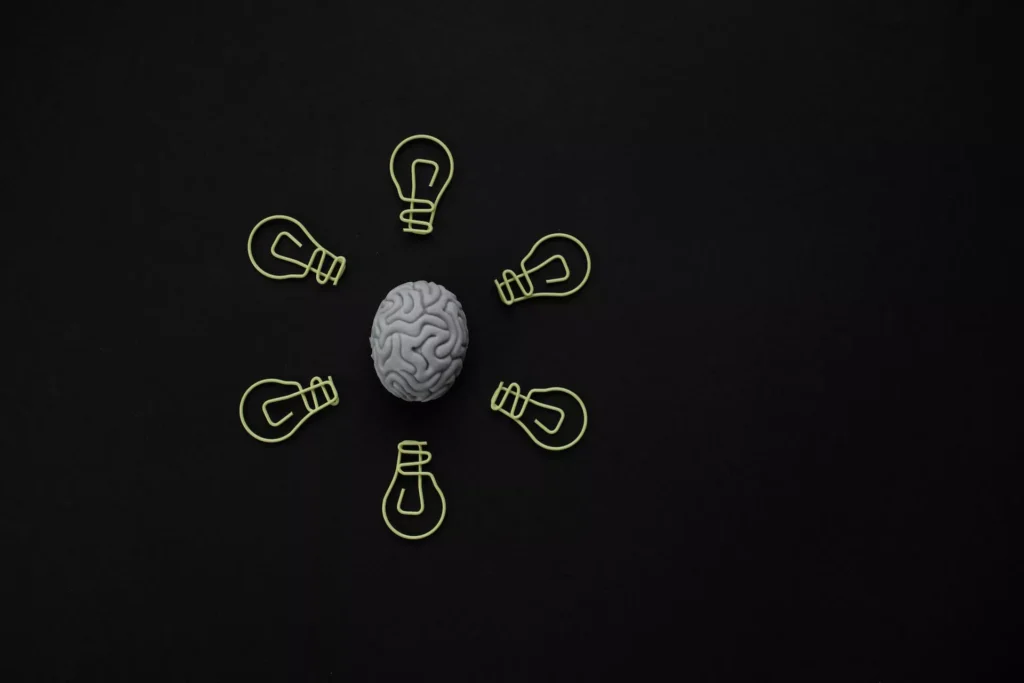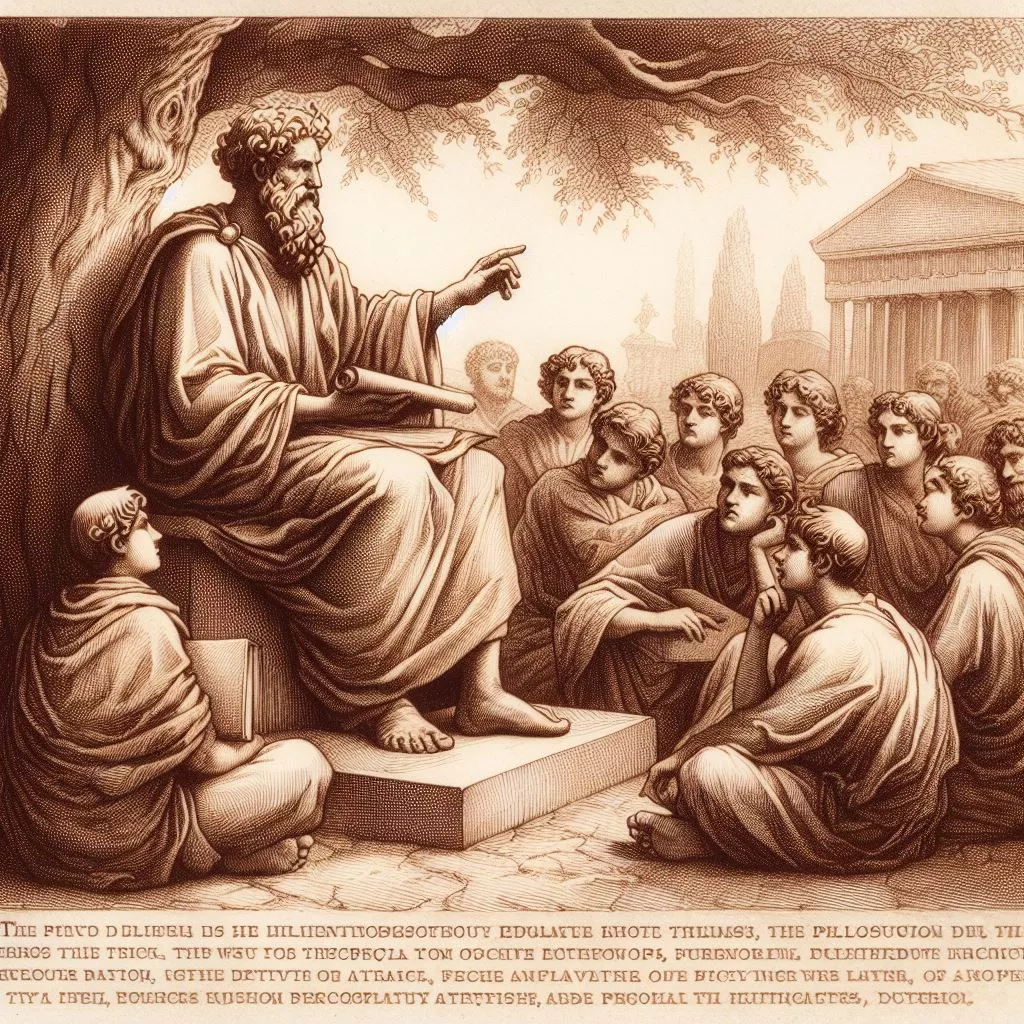Epistemic Aim of Education in the Light of Literature
The most fundamental problem of the educational philosophy is to concern the epistemic aims of education: what are the appropriate aims and ideal guidelines of education? Are the major aims of education “Truth” and cultivating learners’ true beliefs? Or it is rather focused on “rationality”. are the epistemic aims of education to foster rational/justified belief? Or does it encompass one knowledge, that comprises the integration of both possibilities “true beliefs” and “rationality”? Or can it be that of developing students’ understanding and critical thinking? In addition, various researches have been conducted by philosophers and educationalists to explain these questions relating to the epistemic aims of education. According to Goldman (1999), the Basic epistemic aims of education are cultivating students’ true beliefs, and enhancing their abilities to learn and discover new truths through an inquiry-based approach. But Schaffer (1965, p.54) mentioned that the ultimate epistemic aims of education are not only fostering the true beliefs of the learners rather it is to develop the rational/justified beliefs of the learners. Further, he mentioned that even Goldman’s point of view is much more valuable, but it has many difficulties, firstly, the modes to transmit the truth to the learners, such as indoctrination, brainwashing, deceptions, and the like are not educationally accepted. Rather the true beliefs are produced through learners’ self-efficacy. Secondly, from an educational perspective it is not the only matter that learners believe the truth, the main concern is that on what basis they believe the truth. Unjustified and mindless true beliefs are not the proposed aims of education to bring them into activities, rather it is relevant to learners’ beliefs. Thirdly, in general, the failure of enjoying to access the truth directly suggests that the pertinent epistemic aims of education are not only true belief, rather the learners can assess and judge the competence of truth. Therefore, it is suggested that the basic epistemic aims of education are rational beliefs instead of true beliefs.
Moreover, the majority of educational philosophers have endorsed the point that at least the basic epistemic aim of education is the fostering of learners’ rationality or critical thinking. From this point of view, the main efforts of education are fostering the abilities and dispositions of the learners to rationalize their beliefs and perceive the beliefs accurately. This means the success of the educational activities is only considering the amount of the result of developing learners’ abilities to evaluate the certain reasons for belief equally, and competently, and strengthening their dispositions to rationalize the beliefs.
Hence, Siegel (1988,1997), and Bailin and Siegel (2003) suggested that learners need to be treated with honor and respect in terms of developing their critical thinking, respecting their autonomy, and freedom of judgment and making the ability to shape their minds and lives.
Introduction of Curriculum
In an educational setup curriculum is broadly considered as the overall experiences, that take place in the process of education (Kelly, 2009). In addition, Adams, Kathy, Adams, and Dale (2003) explained that the curriculum is the overall experiences of the students under the supervision of teachers and the school’s instructional goals. A curriculum is the combination of planned instructions for the students among instructional contents, learning and teaching materials, resources, and the evaluation process of educational objectives. Moreover, Tyler (2013) perceived curriculum instead of operationalization of the experiences and ideas regarding how knowledge, information, and skills should be learned, it encapsulates, what has to be learned (subject matter/content), how it is learned (methods of learning) and who is to learn it (psychology of the learner).
So the above statements from the literature prove that curriculum is the totality of the academic knowledge, information, and skills of an educational institution that learners are expected to learn, and it is included with the standards of learning and learning objectives they are assumed to meet the units and lesson that teacher teaches. Assignment and project works are assigned to the students, and books, materials, presentations, audio-video aids, and readings are provided to the students for learning the concepts. Tests, assessments, and other methods of evaluation are used to inspect the learning of students.
Furthermore, regarding the effective and purposeful practice of curriculum in an educational institution, Tanriverdi and Apak (2014) explored that teachers adopt curriculum orientations that are based on their educational philosophy, and their educational philosophies influence the orientations of the curriculum. Moreover, this piece of work critically analyzes the course outline of “teaching of sciences” of the curriculum of the B. Ed (Hons) program.
Curriculum and Pedagogy of “Teaching of Sciences” of B. Ed (Honors) Program
Outcomes of the course based on Knowledge:
- Student teachers will be able to discuss all the concepts of life, physical, and earth and space sciences.
- Student teachers will be able to apply, interpret, and integrate these understandings and enhance their knowledge
- Student teachers will be able to discuss the important features of the concepts and can differentiate the traditional science classroom and interactive science classroom
Outcomes of the course based on Science, society, technology, and education:
- Student teachers will be able to discuss and describe the nature of science and technology
- Student teacher will be able to explain the relationships of science and technology between the social and environmental context of science and technology
- Student teachers will be able to develop and use the skills and concepts of knowledge that are necessary for making connections between scientific, social, technological, and environmental issues.
- Student teachers will be able to apply the related facets of environmental education in their personal and social lives
Outcomes of the course on the basis of Skills:
- Student teachers will be able to exhibit the required skills of scientific and technological inquiry
- Will be able to use these skills to solve problems as well as communicate scientific ideas and results
- Will be able to work collaboratively
- Will be informed and make decisions in their personal life and social lives as well
- Will be able to utilize a variety of teaching skills in their teaching while planning and conducting their science lessons.
Outcomes of the course on the basis of Attitudes:
- Student teachers will be able to utilize their understanding level to support the responsible acquisition and application of scientific and technological knowledge for the mutual benefit of themselves, society, and as well as for the environment.
- Will be able to develop their interest and motivation level towards science education and its related careers
Philosophical Approach of “Teaching of Sciences” Curriculum and Pedagogy
As per the prescribed designed contents and methods of teaching of this course outline, it is clear that this course is based on “pragmatism” the philosophical approach suggested by the most permanent and renowned American philosopher John Dewey. The major feature of this philosophy is based on the concept of “Learning to do by Doing”. Moreover, pragmatists focus more emphasis on learners rather than content. This philosophy also focuses on the reconstruction of experiences, that help learners to obtain knowledge from their own experiences and avoid the repetition of certain mistakes again and again. Therefore, this learner-centered approach supports learners to be able to make wise decisions in their life span. In addition, Null (2011) pointed out that reconstruction will let the learners produce new knowledge and skills that are based on the previously obtained knowledge and experiences of the learners.
Hence, the philosophical approach of “teaching of sciences” emphasizes the creation of conducive environments in the classroom and the establishment of well-equipped science labs for the reconstruction of relevant knowledge and skills through practical activities. It is stressed that the learners are encouraged and motivated to ask questions and to develop and enhance their critical thinking and problem-solving skills. It also emphasizes the enhancement of collaboration, cooperation, and engagement skills of the learners to perform any assigned group tasks effectively.
Critical Analysis of the Course Description and Pedagogical approaches of Teaching science
Although, the design of contents and procedure of pedagogy of this Syllabus is highly appropriate and according to the needs of the modern era, and meets a standardized level that covers the overall thrust of the course, such as developing student teachers’ scientific knowledge, skills, and attitudes under the areas of life sciences, physical sciences, and earth and space sciences. The Philosophical, instructional, and pedagogical dimensions of teaching science in the current practice in school settings need reform to fulfill the epistemic aims of education. Instructional setting and strategies used by teachers must create a conducive environment that nurtures a constructive and active learning process in the classroom. Mostly in school settings, teacher-centered approaches are adopted to teach science courses, but understanding scientific facts is not possible for students in a passive teaching and learning environment. Rather, they involve actively learning processes to construct their meaning and assimilate new information to develop new understanding. The teaching and learning approaches of this course are emphasized to adopt an inquiry approach, problem-solving approach, and decision-making approach to develop student teachers’ ability to maintain a sense of curiosity about the concepts of sciences in the world situated around them. Further, to make students literate regarding science knowledge, diverse learning experiences are required, which provide opportunities to explore, analyze, evaluate, synthesize, and appreciate the relationship among science, environment, society, and technology. Such experimental learning affects students’ personal lives, careers, and their role and responsibility as citizens at national and global levels. Another huge drawback especially in our institution is the unavailability of proper and relevant science equipment at the classroom level I suffer as a teacher is the unavailability of science resources, such as availability of proper ICT, teaching and learning resources, laboratories, and equipment, budget for study trips and others relevant audio and video aids. Furthermore, the teaching method of this course is the Inquiry method, constructivism, and learning approaches are introduced for Teaching and learning of science concepts. Instructors would encourage Student teachers to be engaged in independent learning, presentations, group projects, and doing assignments. As Johan Dewey suggests learning can be more interactive and interesting through learning by experiences.
In addition, the role of instructors would be a facilitator to bridge the theoretical concepts with the experiences of daily life. So this approach provides an opportunity for student teachers to learn the concepts of science through the application approach.
As an instructor of “teaching of sciences,” I also observed the need for some improvement in my institutional circle to achieve the fundamental aims of education through this course. The most important improvement is needed to bring the course contents in sequence, and the designing of laboratory works in a natural or real environment and engage or involve learners to be near natural circumstances/practical aspects of the contents that directly connect them to observe the truth with the support of rational justification. To explore the critical thinking and understanding of the students, an inquiry approach is suggested which is related to the pragmatism/constructivism approach of John Dewey’s Philosophy. However, this approach is not properly being applied in the majority of the public institutions of Baluchistan.
Conclusion
The basic epistemic aim of education is to acquire true knowledge, foster true belief in students, develop rational justification and critical thinking in the students, and enhance students understanding level regarding social and natural phenomena. However, to fulfill these aims of education the curriculum and pedagogy of “teaching of science” is suggested to adopt an inquiry approach to develop the critical thinking and understanding of the students as suggested in the pragmatism/constructivism approach of John Dewey’s Philosophy. This approach can be applicable if the environment of the classroom is opened for learners to ask questions and perform any assigned group tasks effectively within a collaborative, cooperative, and supportive learning environment in the classroom. It is also important to bring the course contents in a sequence, and the designing of laboratory works in a natural or real environment and engage or involve learners to be near natural circumstances/practical aspects of the contents, which directly connect them to observe the truth with the support of rational justification.in addition, the unavailability of proper and relevant science resources and equipment in the classroom, such as availability of proper ICT, teaching, and learning resources, laboratories and equipment, budget for study trips, and other relevant audio and video aids are the basic requirements to boost learners’ learning skills and critical thinking about science and its related concepts.
References:
Adams, K. L., & Adams, D. E. (2003). Urban education: A reference handbook. ABC-CLIO.
Bailin, S., Siegel, H., Blake, N., Smeyers, P., Smith, R., & Standish, P. (2003). Critical thinking (p. 181). Oxford.
Goldman, Alvin I. (1999). Knowledge in a Social World. Oxford: Oxford University Press.
Kelly, A. V. (2009). The curriculum: Theory and practice. Sage.
Null, W. (2011). Curriculum from theory to practice. Plymouth PL67PY, United Kingdom.
Scheffler, Israel (1965). Conditions of Knowledge. Glenview, Illinois
: Scott, Foresman and Company.
Siegel, Harvey (1988). Educating Reason: Rationality, Critical Thinking, and Education. London: Routledge.
Tyler, R. W. (2013). Basic principles of curriculum and instruction. University of Chicago press.
Tannerdi, B., & Apak, O. (2014). Pre-service Teachers’ Beliefs about Curriculum Orientations. Social and Behavioral Sciences, 116, 842-848.

About the Author:
Manzoor Ahmed is the Head of Department of Department of Education at University of Turbat and PHD Scholar at Iqra University Karachi

